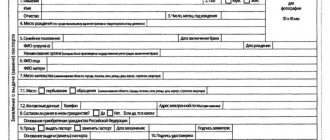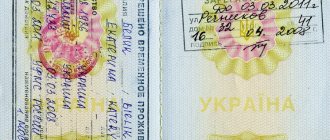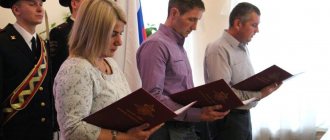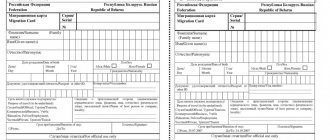For many decades, Russia has been a very attractive region for foreign citizens to resettle here. This happened for a variety of reasons: from military conflicts and natural disasters to programs for the exchange of scientific potential, the natural movement of peoples and economic factors. Every year hundreds of thousands of people from near and far abroad countries enter the country. A logical question arises: what rights do foreign citizens have on the territory of the Russian Federation? How are they regulated? How is the rights of foreign citizens protected in the Russian Federation? Can a resident of another state count on legal assistance in court? Answers to these and other questions are provided by qualified migration lawyers of our company.
Migrants' rights to medical care in Russia
Let's figure out whether a foreign citizen in Russia has the right to free treatment. We will talk about those visitors who are temporarily in the country and have neither a patent, nor a temporary residence permit, nor a residence permit.
In Russia there is an official document - Decree of the Government of the Russian Federation of March 6, 2013 N 186 “On approval of the Rules for the provision of medical care to foreign citizens on the territory of the Russian Federation.” Paragraphs 3 and 5 of this document state that a migrant has the right to emergency medical care in the event that a disease or condition threatens his life. A foreigner can call an ambulance if:
- some chronic disease has worsened (for example, heart disease, gastritis, stomach disease, etc.);
- a life-threatening disease suddenly manifested itself, for example, a heart attack, stroke, etc. Note that in case of suspected coronavirus, a migrant also has the right to call an ambulance and free treatment;
- an accident has occurred and the person urgently needs medical attention;
- an injury has been sustained that requires urgent medical attention, for example, a traumatic brain injury or a transport injury;
- in case of poisoning, foreign citizens also have the right to free medical care;
- childbirth is also included in the list of cases in which a migrant has the right to free medical care.
In general, if there is a threat to life or urgent medical intervention is required, the foreigner has the right to call an ambulance. In these situations, doctors are required to respond to a call and take the citizen to the hospital for hospitalization. You should not charge for medical services in the cases described above. At the same time, foreign citizens are required to be treated free of charge as long as the condition that threatens their life persists.
Unfortunately, in reality, doctors do not always respond to calls from migrants, and if they do, they demand a medical insurance for hospitalization, or begin to demand payment for treatment. Both foreigners themselves and human rights activists talk about this problem.
- Fever, no appetite, hard to breathe.
I called an ambulance once, I felt bad. They said that if you don’t have a policy, that’s it, “we can’t do anything.” story by Uzbek citizen Dilnoza, source rtvi.com
Human rights activist Valentina Chupik confirms that it can be difficult to call an ambulance for a foreigner without an insurance policy. This is what she said in an interview with Radio Azattyk during the coronavirus pandemic.
“I try to call an ambulance for migrants five or six times every day. Only with great difficulty do I, a legally literate person, manage to get an ambulance to come to the migrants. The migrants themselves say that when they call and give a non-Russian surname, those on the other side immediately hang up.
human rights activist Valentina Chupik, source from Radio Azattyk.
If the condition is life-threatening, and the ambulance refuses to respond to a call and requires a medical insurance policy, then you need to refer to the above resolution. It’s better to print it out just in case and keep it on hand.
If doctors refuse to provide services, say that you will complain to the health department. Now in most regions the department operates 24-hour hotlines, which you can call if health workers refuse to come to the call.
In some cases, calling the police with a complaint about the ambulance’s refusal to respond to the call helps. The fact is that for failure to provide assistance to a sick physician, they face criminal punishment, according to Article 124 of the Criminal Code of the Russian Federation. However, police officers often dismiss such requests and say that they cannot help.
Customer Reviews
Gratitude from Antonov Arkady I, Antonov Arkady Shanobich, turned to the Legal Agency of St. Petersburg for help due to the fact that when concluding an agreement for spinal treatment with Medstar, I was actually deceived in the cost of treatment and more. During the process of drawing up a treatment contract with me, no one explained to me that the treatment would be carried out using credit funds; the amount of treatment was constantly changing. My requests to be given longer time to familiarize myself with the procedures and consultations at their price list were refused. That is, there was actually pressure on the client. At home, when I carefully read the entire document, I realized that I had actually been deceived about money and treatment time. On October 30, 2018, I applied for legal assistance from the Legal Agency of St. Petersburg regarding the termination of the contract for treatment at Medstar and the termination of the loan agreement from Alfa-Bank. My case was handled by Denis Yurievich Stepanov, all issues were resolved very quickly and I was informed about all situations. I would like to thank Stepanov D.Yu. and all lawyers who work in this agency.
November 21, 2021
Gratitude from Gordeeva E.S. I express my special gratitude to Sergei Vyacheslavovich for his highly competent and detailed consultation on the issue of the employment contract.
Doctor of Philological Sciences, Gordeeva E.S. 12/01/2018
Customer Feedback We thank the employees of Legal Agency of St. Petersburg LLC and, first of all, Yana Maksimovna Matveeva and Andrey Valerievich Ermakov for their highly qualified and thorough consideration of our issue and the prompt solution to our housing problem.
Also to Daria Valentivna Kutuzov for her attentive and friendly attitude towards visitors.
Gratitude from Elena and Alexander I sincerely thank lawyer Vasily Anatolyevich for his qualified and polite service. We will always contact you and tell our friends. Thank you.
Elena
Alexander 998-98-59
Gratitude from Remedova A.G. I express my gratitude to the Legal Agency of St. Petersburg, namely Denis Yuryevich Stepanov, for the assistance provided in resolving my issue, and I also express my gratitude to the entire team of the consumer rights protection society for their responsiveness and pleasant communication.
Remedova A.G. 08/17/2018
Letter of gratitude to Ermakov A.V.
Gratitude from gr. Voronova T.A. I express my gratitude to Yuri Vladimirovich for competent, highly professional advice on the issue of “Protection of Consumer Rights”, a clear explanation of my further actions in my situation, as well as gratitude to Olga Anatolyevna for her attentive and sensitive attitude towards visitors. I was glad to meet your agency!
Voronova Tatyana Anatolyevna
tel.
Gratitude from P.V. Greshina I would like to express my deep gratitude to the employees of your company - Sergei Vyacheslavovich Mavrichev and Konstantin Vasilyevich Solovyov for their enormous support, for their competent explanation and good attitude towards people. I wish you success and prosperity.
Greshina P.V. 03/23/2018
Gratitude from N.S. Khokhlov I am Khokhlov N.S. I express special gratitude to lawyer A.V. Pavlyuchenko who defended my consumer protection rights. I was pleasantly surprised by his professionalism, where he discovered the false address of my defendant registered in the Unified State Register of Legal Entities, and also defended me, as I believe, from the unreasonable decisions of the trial judge. If I need legal assistance in the future, I will only turn to A.V. Pavlyuchenko.
N.S. Khokhlov December 12, 2017
Gratitude from Alexey Shubakov Many thanks to Sergei Vyacheslavovich for the complete and detailed consultation. I have not encountered legal assistance before, but now, with a very favorable impression, I will definitely apply again in the future.
Shubakov Alexey 10/17/2018
Rights of foreign citizens to place children in kindergartens and schools in the Russian Federation
Children of foreigners have the right to receive free education in Russia. This is stated in Article 78 of Federal Law-273 “On Education” . The document states that migrant children have exactly the same rights to education as Russians. According to the law, children of foreign citizens can free of charge:
- attend kindergartens;
- study at school from grades 1 to 11.
But in reality, placing a child in a kindergarten or school is not so simple. To enter an educational institution, a child needs a medical insurance policy . registration at the place of stay or place of residence is required - this is stated in paragraph 9 of Order of the Ministry of Education and Science of the Russian Federation dated January 22, 2014 N 32 “On approval of the Procedure for admitting citizens to study in primary general educational programs, basic general and secondary general education.” If there is no registration, the director of the educational institution may refuse to admit the child.
Read more about issues of studying for foreigners in Russia.
Court decisions

The statute of limitations saved the car service from millions of losses
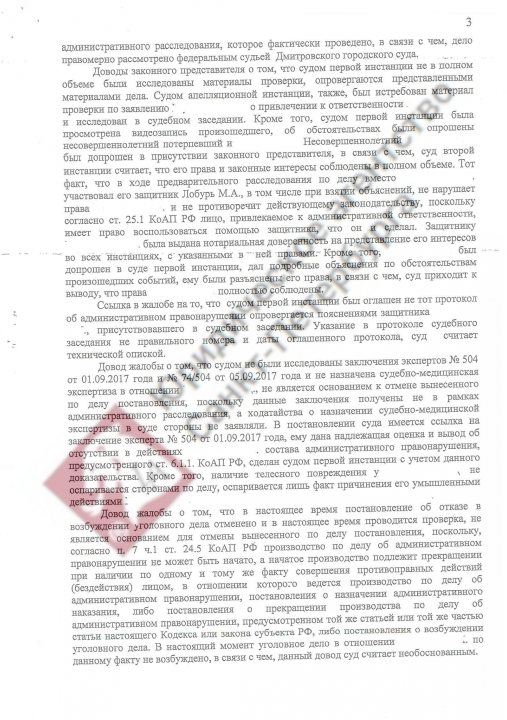
Unintentional rudeness: Trying to break up a fight almost cost a hockey club coach his career
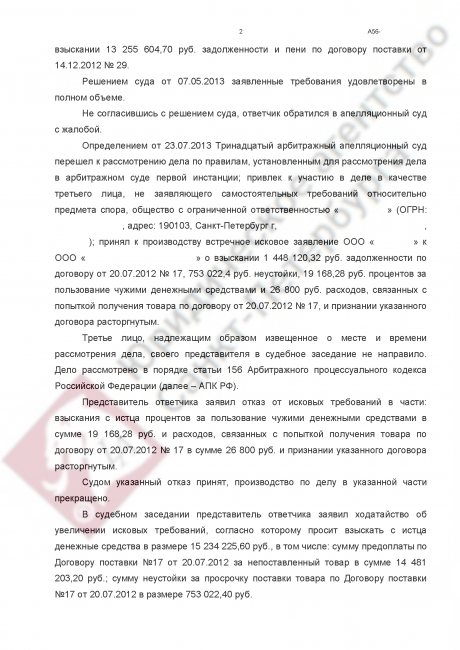
Unlawful demand for damages
The insurance company demands additional payments
Disputes between the customer and the contractor
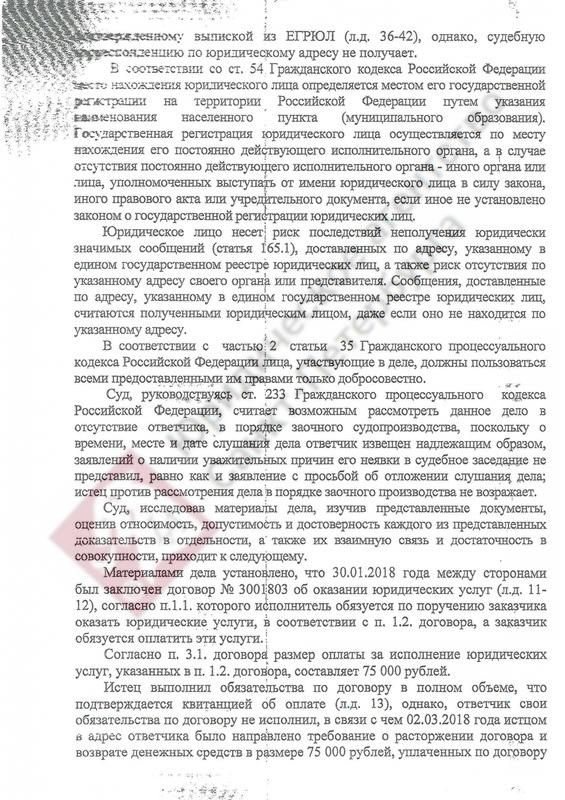
Lawsuit against a law firm: How to avoid being scammed by scammers
Obtaining loans and obtaining mortgages from Russian banks
The law does not prohibit the issuance of loans and mortgages to foreign citizens. That is, a foreign citizen has the right to apply to a bank to obtain a loan. The problem is that not all banks are ready to work with migrants. It is especially difficult to get a cash loan. If a person does not have a residence permit, then it is almost impossible to do this. With a residence permit, some banks are ready to consider issuing cash to a foreigner, but subject to a number of conditions.
Foreigners are also not prohibited from obtaining a mortgage. And, by the way, this type of loan is easier for a migrant with a temporary residence permit or residence permit to obtain than a cash loan. Banks are ready to consider candidates from foreign citizens, but again, there are a number of requirements, for example, having official work and experience in the Russian Federation, proof of income, and the ability to make a down payment of 20 - 30% of the cost of the property.
Rights of foreigners to receive pensions in the Russian Federation
Migrants have the right to apply for a pension in Russia. But not all. The only category of foreign citizens who can count on pension payments are holders of a Russian residence permit (RP). This right is established in Part 1 of Article 3 of Federal Law-166 “On State Pension Security in the Russian Federation” .
For all other foreign citizens, pension payment is not provided. That is, if a migrant temporarily stays in the Russian Federation, works here under a patent, and has a temporary residence permit (TRP), then he will not be able to receive a Russian pension.
Protecting the rights of migrants and issues of bioethics
December 14, 2021 8:17 pm
On December 14–15, an in-person session of the HELP course on advanced training for Russian lawyers is being held in Pyatigorsk
On the basis of the Southern Center for Higher Courses of Advanced Training (SC VKPK) of the FPA RF, a full-time and distance-duplex course “European Convention on Human Rights and the Protection of Asylum Seekers and Migrants” and “Bioethics. Human rights in the field of biomedicine.” Organizers: the Administrative Office of the Stavropol Territory together with the Administrative Office of the Republic of Adygea with the support of the Federal Chamber of Lawyers of the Russian Federation. The course started on October 28 as part of the HELP Program of the Council of Europe.
The session concluded the first stage of the dual course, after which participants will switch groups and thus receive training on two topics.
It should be noted that the training was initially planned for lawyers of the Southern and North Caucasus federal districts. But, since lawyers from Moscow, the Moscow region, St. Petersburg, and the Khanty-Mansiysk Autonomous Okrug expressed their desire to take part in it, the course became all-Russian.
Welcoming speeches were made by the Executive Vice President of the FPA RF Andrey Suchkov, the head of the Southern Center for Higher Courses of Advanced Training of the FPA RF, the President of the Administration of the Stavropol Territory Olga Rudenko, the coordinator of the HELP project in Russia, an employee of the Department for Policy and Cooperation in the Field of Human Rights of the Council of Europe Anastasia Shadarova .
In his speech, Andrei Suchkov noted that the HELP courses, which are conducted by the Southern Center for Higher Advanced Training Courses of the FPA RF, are unique. He emphasized that many lawyers who have successfully completed the training admit that they divide their legal practice into “before” and “after”, since the quality of their professional work changes dramatically as a result of the course.
Currently, this program trains not only lawyers from various regions of Russia, but also representatives of the state - primarily the institutions of the Commissioners and members of their staff. The Russian experience of training based on the HELP platform received an extremely positive assessment from the Council of Europe.
The Executive Vice President of the FPA RF highly appreciated the role in the organization and conduct of training of the head of the Legal Center of the All-Russian Communist Party of the Russian Federation Olga Rudenko, as well as the ideologist and direct executor - member of the Council of the Administrative Board of the Stavropol Territory, international trainer of HELP courses, lawyer of JSC "Intellect" NO SKKA Oksana Sadchikova.
Anastasia Shadarova drew attention to the fact that in Russia there are very few specialists in the field of protecting the rights of migrants and practically no specialists in bioethics. In this regard, according to her, there is obvious great practical demand for course graduates.
President of the Stavropol Territory Administrative Office Olga Rudenko expressed gratitude to the lawyers who are motivated to constantly learn, improve their qualifications, and improve their professional skills. “I really want the system of full-time and distance learning for lawyers in various areas of activity, including HELP program courses, to be developed within the framework of a single federal program,” she added.
Among the course trainers are representatives of the Office of the UN High Commissioner for Refugees Irina Shcherbakova and Tatyana Bershachevskaya, lecturers from the Higher School of Economics. Participants in the face-to-face meeting will have to study and practically master the topics of protecting the rights of refugees and migrants, expulsion and extradition, take part in the intellectual game “Bioethics”, review the practice of the European Court of Human Rights on bioethics, take a historical excursion into the development of the European Convention on the Protection of Human Rights human rights and fundamental freedoms in relation to the topics under consideration, discuss the problems of legal regulation in the field of transplantation of human organs and tissues. The second day of the face-to-face session will be devoted to the study of general trends in the field of bioethics and biomedicine, including philosophical approaches to this topic and its legal regulation, conducting an intellectual game on the topic of the course, immersion in current problems of legal regulation of reproductive technologies in Russia and the relationship with international standards, applied the topic of protecting the rights of the patient during involuntary examination or medical intervention.
SharePrint Direct link to the material:
Share
The right of foreign citizens to travel outside Russia
Foreign citizens often ask questions about whether it is possible to leave Russia after submitting documents for a temporary residence permit/temporary residence permit or whether it is possible to leave the territory of the country already having these statuses.
If a country prohibited foreigners from traveling abroad, it would be a violation of human rights. A migrant has the right to leave the territory of the Russian Federation if he has submitted documents for a temporary residence permit or temporary residence permit. Already having these statuses, a foreign citizen also has the right to travel abroad, but the total period of stay outside the Russian Federation should be no more than six months a year .
Migrants with patents also have the right to leave Russia. If the patent has been paid for, then the document will not be canceled in case of travel, and upon return you can continue to work on it.
